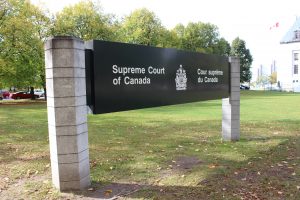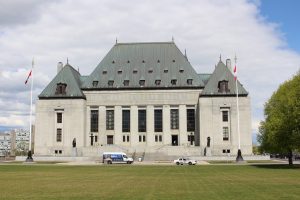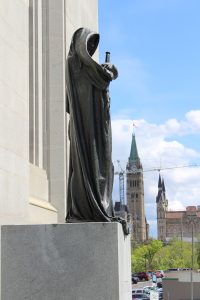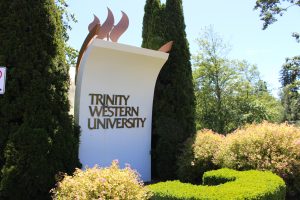- Will Lawyers In Canada Soon Face A Religious Test? The Hypersensitive Response Over Canada’s First Openly Christian Law School
- BC Law Society Approves TWU Law School Graduates
- The Cold Chill of the Legal Profession’s Rejection of Religious Freedom
- A Referendum On Religious Freedom
- Lawyers’ Referendum Not Just About TWU – It’s About Our Commitment To The Rule Of Law
- Called To Participate, But Not At The Table
- Hearing Update On Trinity Western University v. Nova Scotia Barristers’ Society
- Breaking News Supreme Court of Nova Scotia rules in favour of Trinity Western University …. more to come
- Space Enough For All: Nova Scotia Supreme Court Makes Decision on Trinity Western University Law School
- The Strange Case of Nova Scotia Barristers’ Society Appeal of the TWU Ruling
- CCCC Granted Intervener Status In TWU Case in British Columbia
- The Onward March of TWU: Next Step The Court of Appeal
- Trinity Western University and the Legal War of Attrition: Isn’t It Time To Let Diversity Flourish?
- Charitable Status of Un-Popular Opinion
- CCCC Denied Intervener Status at Ontario Court of Appeal
- CCCC Granted Intervener Status at the BC Court of Appeal on TWU Case
- Sending a Message to TWU: Your Graduates Need Not Apply
- Recent Happenings: CCCC Files Factum At BC Court of Appeal; Bussey appears on TV
- CCCC at the British Columbia Court of Appeal
- The Experts Demand Deference: Law Societies & TWU
- The Intolerance of Intolerance: The Outrageous Accusation That TWU’s School of Law Is Related To The Orlando Massacre
- Being On the Right Side of History: Where the Offended Take Away Religious Freedom
- Nova Scotia’s Highest Court Rules in Favour of TWU
- Common Sense Prevails at the Nova Scotia Court of Appeal
- Bussey on John Gormley Show
- Nova Scotia Barristers Society Will Not Appeal
- BC Court of Appeal On TWU
- Developing Story: BC Court of Appeal Rules 5-0 in favour of TWU
- The Decision That Has Changed Everything For TWU
- Law Society of BC Appeals TWU To Supreme Court of Canada
- Bussey in Vancouver Sun: Appeal court ruling on Trinity Western University is a game changer
- The Legal Revolution Against Religion
- Supreme Court Grants Leave On TWU
- Supreme Court Grants 9 But Denies 23 Groups Intervener Status In Landmark Case
- Canadian Council of Christian Charities Granted Intervener Status in TWU Case: The Supreme Court Changes Course On TWU Interveners
- Australian Group Interviews Bussey on Equality and Freedom of Religion
- Bruce Clemenger’s Video Message on TWU Case
- Oral Argument of CCCC on TWU at the Supreme Court of Canada
- June 15 TWU Decision To Be Released
- TWU Loses: Canada’s Religious Freedom Forever Altered
- The Constitutional Promise of Religious Freedom Betrayed
- TWU Drops Mandatory Community Covenant

The Supreme Court of Canada decided today that it will hear Trinity Western University’s appeal of its loss in the Ontario Court of Appeal last June.
Both the Ontario Divisional Court and the Ontario Court of Appeal ruled in favour of Ontario’s law society (The Law Society of Upper Canada). That law society refuses to accept any TWU law graduate that wishes to article in Ontario. Articling is the term given to the 12 month legal training a law graduate receives under the direct supervision of a senior lawyer before being eligible to be called to practice law on their own.
The Supreme Court also granted leave in the Law Society of British Columbia’s appeal of the BC Court of Appeal’s decision last year that ruled in favour of TWU. The British Columbia Supreme Court had also ruled in favour of TWU.
Both the Nova Scotia Supreme Court and the Nova Scotia Court of Appeal ruled in favour of TWU. However, after its loss at the NS Court of Appeal, the Nova Scotia Barristers’ Society decided not to appeal to the Supreme Court of Canada.
Both the Ontario and the British Columbia appeals will be heard consecutively by the Supreme Court in Ottawa, on a date yet to be determined.

Supreme Court of Canada, Ottawa
Trinity Western University applied in June 2012 to the Federation of the Law Societies of Canada for accreditation of its proposed law school. Opposition arose from a number of advocate groups including academics, such as the Canadian Law Deans, because of TWU’s requirement that its students sign a Community Covenant which, among other things, requires a lifestyle in harmony with its religious view of traditional heterosexual marriage. Though it is a private school, with no government funding, and though it had won a similar challenge at the Supreme Court in 2001, the opposition demanded that the school not be granted accreditation. However, in December 2013, the Federation, after much study and debate, recognized TWU’s religious freedom to be permitted to operate a law school, and given that the proposal met the academic requirements, it granted TWU accreditation.
A firestorm erupted among those against TWU and pressure was brought to bear on each provincial law society not to accept the Federation’s decision. Three societies ultimately decided against accepting TWU’s law school proposal: Ontario, Nova Scotia and British Columbia. That led to TWU appealing to the courts. The courts at both levels in Nova Scotia and British Columbia ruled in favour of TWU recognizing its right to religious accommodation under the Charter. However, both courts in Ontario ruled against TWU, citing its religious practice on marriage as being discriminatory against LGBT students.

For those in the legal community who wanted the 2001 TWU decision overturned, because it gave TWU the right to operate its university within a traditional Christian environment, getting the Supreme Court to hear this case has been a win. As Lisa Teryl, Legal Counsel for the Nova Scotia Human Rights Commission stated, “A judicial review would open up the possibility of the Supreme Court of Canada revisiting its [2001] reasoning. The High Court could consider the issues reframed in terms of the preservation of democratic state values of maintaining a separation of church and state for secular activities that conflict with discriminatory religious beliefs.”
For those of us in the religious community this case has been something that we had long suspected would happen as the sexual equality rights campaign becomes more focused on those religious communities that maintain their traditional sexual mores. We are now entering a time where even private religious communities, in their own religious organizations, are being challenged for their “discriminatory religious beliefs.” Even though our organizations are “private” in that they are run and operated by religious communities, those who do not accept our right to so operate have labeled our enterprises (such as running schools and universities) as “public” because we have to be publicly accredited. This is a total re-imagining of the concept of religious freedom that we have enjoyed in Canada since its founding. It is a revolutionary position.
In the coming weeks Canadian Council of Christian Charities will be seeking leave to intervene in these two cases. We will keep you informed how things work out.



Good to hear!
Yes we are on the last leg of a very long journey. If TWU is successful this time around, which I certainly think they ought to be, I hope that if they want to start another degree they will not have to go through this whole process again!